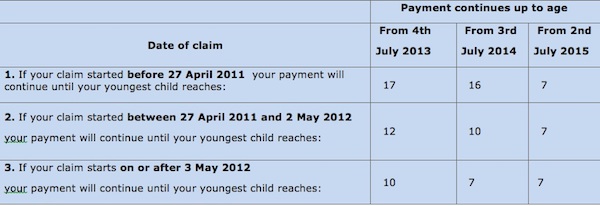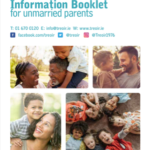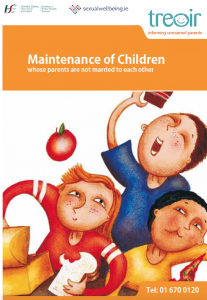Social Welfare Payments during pregnancy
If you are not working:
- Make direct contact with your Social Welfare Office and check what you may be entitled to, for example, Jobseeker’s Allowance, Jobseeker’s Benefit.
- Bring your birth certificate with you.
Apply to your local health centre as you may be entitled to:
- Supplementary Welfare Allowance
- Medical Card / G.P. Visit Card
- Rent Supplement
- Help towards the cost of necessary items (buggy, cot etc)
- You may qualify for Maternity Benefit if you have paid enough Social Insurance Contributions (check with the Maternity Benefit Section). See below.
- You should apply for Maternity Benefit at least 6 weeks before you intend to go on Maternity Leave.
- You may also be entitled to Health and Safety Benefit/Leave if there is a risk for you in your work while you are pregnant or breastfeeding and your
employer cannot remove the risk or assign you alternative risk-free duties.
How much maternity benefit will I get?
- If you qualify for Maternity Benefit you will get €245 per week. Some employers will continue to pay an employee in full while on Maternity Leave.
Check with your employer. - Maternity Benefit will be taxed. However, you will not pay PRSI or Universal Social Charge.
- You can get Maternity Benefit for the 26 weeks of Maternity Leave.
- If you are already receiving One-Parent Family Payment you may still be entitled to half rate Maternity Benefit if you satisfy the contribution conditions.
For further information contact:
Maternity Benefit Section
Locall 1890 690 690
Health and Safety Benefit Section
Locall 1890 690 690
www.welfare.ie
Medical care
Ante-natal (before birth) care and post-natal (after birth) care in the public health services are generally free to all women ordinarily resident in Ireland. Non medical card holders may have to pay some charges.
Maternity leave
You are entitled to Maternity Leave no matter how recently you have started work or how many hours you work per week. You are entitled to 26 weeks Maternity Leave.
You can also take an additional 16 weeks Maternity Leave, but you won’t get Maternity Benefit for these extra 16 weeks.
Paternity leave/benefit
As a result of new legislation, fathers (‘relevant parents’) are entitled to two weeks of paternity leave and two weeks of paternity benefit for babies born on or after 1st September 2016. Fathers may start the combined package of paternity leave and paternity benefit at any time within the first 6 months following birth or adoption of a child. The PRSI contribution conditions and the rate of benefit paid will be the same as those for Maternity Benefit (€245 per week). See here for further information.
A ‘relevant parent’ is:
- The father of the child;
- The spouse, civil partner or cohabitant of the mother of the child;
- The parent of a child who is donor conceived;
- The spouse chosen by a married couple of the same sex to act as relevant parent;
- The spouse civil partner or cohabitant of the adopting mother; or
- The spouse, civil partner or cohabitant of the sole male adopter of the child.
The purpose of paternity leave is to allow the relevant parent to provide care to the child, or to provide assistance to the mother of the child, or the relevant adopting parent of the child.
Parental leave
Each parent is entitled to 18 weeks unpaid parental leave for each child. The leave must be taken before the child is 8 years old. For more information on how to avail of Maternity/Parental Leave contact Workplace Relations LoCall 1890 80 80 90 or see www.workplacerelations.ie
Social Welfare Payments if you ARE NOT working outside the home following the birth of your baby
One-Parent Family Payment (0FP)
You are entitled to One-Parent Family Payment (OFP) if you:
- Have at least one child below the relevant age limit (see chart below)
- Have the main care of your child
- Are not cohabiting
- Satisfy the means test
- Satisfy the Habitual Residence Condition
To continue to get One-Parent Family Payment you must have at least one qualified child below the relevant age limit as outlined here:

If your child’s birthday is after July in the relevant year in which your claim ends, the OFP will continue to be paid until your child’s birthday in the same year.
Your entitlement to OFP is not affected:
- By having the father’s name on the birth certificate
- If you are living at home with your family
- If you are still at school or college
The current maximum rate of OFP for a parent plus one child is €232.00. For every additional child you get €34.00 each per week (2019 Social Welfare Rates).
Parents who are no longer eligible for One-Parent Family Payment (OFP) because of the age of their youngest child can benefit from new transition arrangements for Jobseekers Allowance (JA) (See Jobseekers’s Transition Arrangement for OFP below)
Things you should know about maintenance payments
- You will be asked by the Department of Social Protection to try and get maintenance from the father of your child after your payment has been granted even if the father’s name is not on the birth certificate.
- Maintenance paid directly to the Department by one parent will not be passed on to the other parent.
- Rent or mortgage payments may be allowed against maintenance up to a maximum of €95.23 per week.
- From 6 June 2024, child maintenance payments are not included in the means test for social welfare payments.
If you are getting Rent or Mortgage Interest Supplement*:
- The first €95.23 of maintenance will be fully assessed for Rent Supplement purposes.
- Any maintenance over €95.23 is assessed differently.
*For more information on Mortgage Interest Supplement see www.welfare.ie
Other Entitlements
- Child Benefit: €140 per month for each child under 16 years of age or under 18 if the child is in full-time education.
- The Early Childhood Care and Education Scheme (ECCE): This is a free pre-school year for all children between the ages of 3 years and 2 months and 4 years and 7 months on 1 September of the year that they will be starting pre-school. Your child will usually attend free pre-school for 3 hours a day, 5 days a week, over 38 weeks. From September 2016 the ECCE programme will be extended to children aged between 3 years and 5 years and 6 months, or until they start primary school. The number of weeks available on the scheme is increased. Parents will be able to enroll their children in pre-school at three different points during the year- September, January and April.
You may also qualify from your local health centre for:
- Medical Card / G.P. Visit Card
- Back to School Clothing and Footwear Allowance
- Rent Supplement
All payments are subject to the Habitual Residence Condition.
Jobseeker’s Transition Arrangement for OFP
Parents who are no longer eligible for One-Parent Family Payment (OFP) because of the age of their youngest child can benefit from new transition arrangements for Jobseekers Allowance (JA). While JA recipients must be available for and genuinely seeking full-time work, under these new arrangements:
- Parents moving from OFP to Jobseeker’s Allowance Transition do not have to be “available for and genuinely seeking full-time work”.
- Parents can work part-time without restrictions and still receive the JA Transition payment, subject to the Jobseeker’s Allowance means test.
Conditions:
- The youngest child of the parent must be under 14 years of age
- The parent must be continuing to parent alone (i.e. not cohabiting)
- The parent must satisfy the full Jobseekers Allowance (JA) means test.
Parents will have access to the ‘Intreo’ activation supports to help them to progress to or to get into employment.
For more information call us on 1890 252 084 or find more information here.
To contact your local Intreo Centre or Social Welfare Local Office see here
For further information contact:
Early Childhood Care and Education Scheme
Childcare Directory Tel: 01 647 3000 (10.00-12.30 / 2.30-4.00)
www.dcya.gov.ie
Child Benefit Section
LoCall 1890 400 400
One-Parent Family Payment
Contact your local Intreo Centre or Social Welfare Local Office see here
Social Welfare Appeals Office
LoCall 1890 747 434 Tel: 01 673 2800
www.socialwelfareappeals.ie
Social Welfare Payments if you ARE working outside the home following the birth of your baby
One-Parent Family Payment (OFP)
You may be entitled to One-Parent Family Payment (OFP) if you:
- Have at least one child below the relevant age limit (see chart above)
- Have the main care of your child and are not cohabiting.
- Are working and satisfy the means test (see below).
- Satisfy the Habitual Residence Condition.
The current maximum rate of OFP for a parent plus one child is €232.00. For every additional child you get €34.00 each per week (2019 Social Welfare Rates)
Means Test: What counts as means?
- Income: the first €150 of weekly earnings is completely ignored – so that won’t affect your OFP. Half of the remainder of your weekly earnings is counted as means. If you earn more than €425 a week then you won’t qualify for OFP.
- Maintenance: From 6 June 2024, child maintenance payments are not included in the means test for One-Parent Family Payment (or any other social welfare payment).
- Savings: the first €20,000 is ignored and the rest is counted as means.
See below how maintenance also affects your Rent or Mortgage Interest Supplement.
What else can I keep if I am working?
- You will still get your Child Benefit no matter what you are earnings.
- You can keep your Medical Card / G.P. Visit Card for 3 years if you have been getting OFP for at least 12 months no matter how much you earn.
- The Early Childhood Care and Education Scheme (ECCE) (see above).
Working Family Payment (WFP)
You may qualify for the WFP, (formerly FIS) if you are working at least 19 hours a week on low wages. For a family with one child, wages after tax plus OFP must be less than €511 (€612 with two children) per week. The rate is higher if there are more children.
Housing Assistance Payment (HAP)
HAP is a form of housing support offered by Local Authorities to families and individuals who qualify for social housing support. Applicants seeking HAP must be on their local authority housing list. under HAP agreements, the Local Authority makes rent payments, subject to rent limits , directly to a private landlord. (Rent limits differ across local authorities). Your local authority housing department do NOT source housing, tenants must find their own property. Landlords must agree to accept HAP tenancy agreements. See below for contact details for the Department of Housing, Planning and Local Government for further details.
Rent Supplement
If you are not working
You may qualify for Rent Supplement if you’re receiving a Social Welfare payment and living in private rented accommodation. You will have to make a minimum contribution of €30 per week towards the rent. The minimum contribution payable by cohabitants is €40 per week.
If you are working
If you take up part-time work (up to 30 hours a week) any ‘additional household income’ (AHI) – that is any income you receive over and above the full rate of Supplementary Welfare (€232.00 for an adult with one dependant child) – will be assessed as follows:
- The first €75 of AHI is ignored and
- 25% of anything over €75 of AHI is ignored
In general if you are working full-time (30 hours or over a week) you are not entitled to Rent Supplement. However, if you get full-time work and you have been accepted as being in need of accommodation under the Rental Accommodation Scheme (RAS) by your local authority, you may be able to keep your Rent Supplement (provided you have been unemployed or not in full-time employment for at least 12 months before you start work). The above assessment will apply.
For details of your Local Authority contact:
Department of the Housing, Planning and Local Government
LoCall 1890 20 20 21
www.environ.ie/en
All payments are subject to the habitual residence condition. For further information see here
Useful contacts:
One Parent Family Payment
Contact your local Intreo Centre or Social Welfare Local Office see here
Family Income Supplement Section
Locall 1890 927 770
Employment Support Services
Locall 1890 927 999
Facilitator at your Social Welfare Office
LoCall 1890 66 22 44
www.welfare.ie
Local Employment Services (Obair)
www.localemploymentservices.ie
Income tax / Universal Social Charge
You are entitled to:
- Your own Personal Tax Credit of €1650
- Single Person Child Carer Tax Credit of €1650*
- A PAYE Tax Credit of €1650
*This tax credit is only available if you are not cohabiting or living with a civil partner/spouse. The tax credit is payable only to the main carer of the child. If the main carer is not working it may be possible to give this credit to the other carer/parent. See www.revenue.ie
It is possible to have tax credits back-dated (four years maximum) if they have not been claimed.
You will be taxed at the rate of 20% for the first €36,800 you earn and the rest at 41%. Maternity Benefit and OFP is taxable. Family Income Supplement is not taxable.
Universal Social Charge
If you earn less than €13,000 per year you do not have to pay the Universal Social Charge. If your income exceeds this limit you will pay the relevant rate of Universal Social Charge on all your income.
The following rates and thresholds apply:
income up to €12,012 @0.5%
next €7,862 @2%
next €50, 170 @4.5%
Income above €50, 170 @ 8%
Social Welfare payments are exempt from the Universal Social Charge. If you have a full Medical Card you will pay 0.5% on income up to €12,012 and a maximum of 2% on any income over €12, 120.
Revenue Commissioners’ LoCall numbers:
Border, Midlands, West Region
Locall 1890 777 425
Dublin Region
Locall 1890 333 425
Southwest Region
Locall 1890 222 425
East and Southeast Region
Locall 1890 444 525
Opportunities in education and training
If you are staying in school
You can still get One-Parent Family Payment (OFP). You must satisfy the conditions for OFP. Check with your school early in your pregnancy to see if you could benefit from the Home Tuition Scheme while you are pregnant. See www.education.ie
If you have already left school
If you have already left school and want to go back to finish secondary school, VEC or college then you can switch from OFP to the Back to Education Allowance (BTEA) if you have been on OFP for 3 months or more. In the case of third level courses, you may only transfer to the BTEA if you have been in receipt of OFP for at least 9 months. BTEA will allow you to keep your Medical Card / G.P. Visit Card and Rent Supplement.
To qualify for BTEA you must be either over 18 and two years out of education or over 21.
If you are over 21 and getting OFP for 6 months then you could apply for a Vocational Training Opportunities Scheme (VTOS).
There are no fees. Books are free and there is a small travel allowance. Some childcare money is also available. There are many courses on offer and you could do your Junior or Leaving Certificate. See www.qualifax.ie
There might be a Youthreach near you. You can get basic and specific skills training, practical work experience and some general education. See www.youthreach.ie.
See www.solas.ie (formally FÁS) for details of training courses.
Childcare
The biggest obstacle to going back to school or college is organising and paying for childcare for your child. Some colleges have childcare attached and others can give you an allowance for childcare. Check locally to see what is available or contact your local childcare committee. See www.dcya.ie and search ‘childcare’ to see what is available and for contact details of your local Childcare Committee.
For further information see:
- Young Parent Survival Guide Issue No. 1
- Young Parent Survival Guide Issue No. 2
- www.studentfinance.ie
- Department of Education and Science
Habitual Residence Condition
Habitual residence is a condition you must satisfy in order to qualify for certain social welfare payments.
These payments include:
- Jobseeker’s Allowance
- One-Parent Family Payment
- Child Benefit
- Supplementary Welfare Allowance (other than once-off Exceptional and Urgent Needs Payments)
Habitual residence means you have proven close links to Ireland or other parts of the Common Travel Area: Ireland, Great Britain, the Channel Islands and the Isle of Man. The most important factors for providing this link are:
- Length and continuity of residence in Ireland or elsewhere
- The length and purpose of any absence from Ireland
- Nature and pattern of employment
- Main centre of interest
- Future intentions
EU Regulations and Habitual Residence
EU/EEA citizens and Swiss nationals who are employed or self- employed in Ireland and subject to the Irish Social Insurance system, do not have to satisfy the Habitual Residence Condition to qualify for Family Benefits. The following Irish social welfare payments are classified as Family Benefits under EU Regulations:
- One-Parent Family Payment
- Guardian’s Payment (Non-Contributory)
- Family Income Supplement
- Child Benefit
- Early Childhood Care and Education Scheme (ECCE)
For further information search ‘habitual residence condition’ on www.welfare.ie
Download our Information Pack for Unmarried Parents here
Click HERE for changes to welfare payments 2019
Download our Information Leaflet on Maintenance of Children HERE
Treoir 2019
While every effort has been made to ensure the information provided in this webpage is accurate, no responsibility can be accepted by Treoir for any error or omission.


